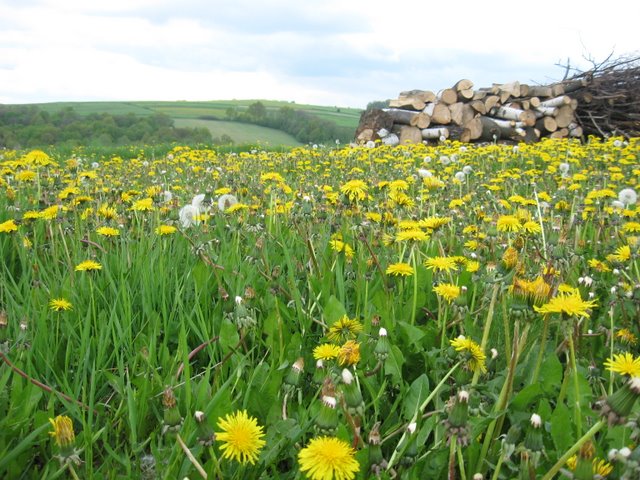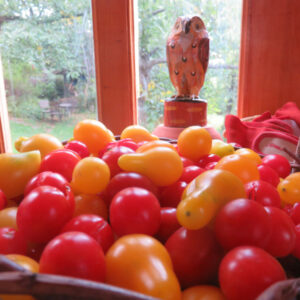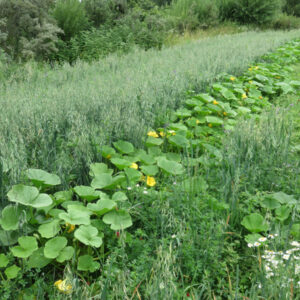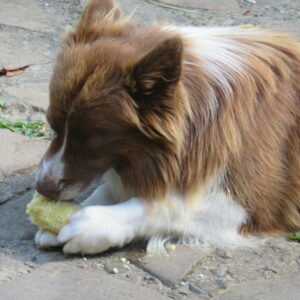
A model envisioned in „Small Is Beautiful” is possible in reality
A model envisioned in „Small Is Beautiful” is possible in reality – welcoming to the Polish countryside.
In the early 1970?s, Fritz Schumacher wrote the book „Small Is Beautiful” and proposed ?an economics as though people mattered? comprising small scale, flexible and ecologically sensitive developments as the long term solution for preserving the planet and the quality of life of its populace. Three decades on, we seem to be no nearer to applying the wisdom inherent in Schumacher?s work.
It is not just the loss of lively hoods and poisoning of the soil that marks this out as the worst crisis to have hit the countryside in centuries, but it is the loss of „a whole way of life” and the great store of knowledge and wisdom that goes with it. Today, a handful of transnational corporations control a high percentage of commercial agricultural activities in Europe and North America ? and a similarly small number of supermarkets dominate the market place.
The only plausible solution to this global crisis, is to reawaken our awareness, sensitivity and belief in another way of life which treats our resources, communities and human capabilities as precious entities whose long term care and protection are seen as a top priority.
Fortunately there are still some relatively undistorted examples that we can draw from when searching for models for rebuilding our lives; and not surprisingly, we can learn most from the most humble and thoughtful trustees of the land: the peasant farmers.
There are still some 1.5 million self-sufficient, small peasant farms in Poland, averaging approximately 10 ha. For the most part these holdings fulfil all the criteria of genuine ecological sustainability, mainly because they practice a time honored, traditional form of agriculture that shuns chemicals, rotates crops and returns all biodegradeable matter to the soil. They are family run enterprises whose first objective is to feed their families. Only when there is a surplus is it marketed, and marketed locally.
In November 2000 we established the International Coalition to Protect the Polish Countryside – ICPPC with the main task to try to help to secure the survival of some one and a half million small family farms that range across the length and breadth of the Country. These farms are the guardians of an extraordinarily rich natural biodiversity which places Poland at the top of European species rich regions.
ICPPC has been campaigning to protect the small farms, promoting local marketing initiatives and establishing a strong movement against the cultivation of genetically modified organisms. We also runs a small demonstration area, ECOCENTRE ICPPC, with clay/straw buildings, solar energy production and a household recycling clean water system. Organic fruit and vegetable production and herb garden are also part of this educational centre.
ECOCENTRE ICPPC is located in traditional village Stryszow, 45 km from Krakow, in the Province of Malopolska (south Poland). Here we have been combine traditional and organic, small scale agriculture with modern, innovative applications of renewable energy production, such as solar, wind and biomass for heating and electricity generation to show the model of ecological sustainability envisioned in „Small Is Beautiful” is possible in reality. Poland seems well placed to take the lead in realising this goal.
Our team has been running programme with a difference… a rare chance to get under the skin of 'the countryside way of life’ in a part of Europe that holds the clue to subsistence farming and leads Europe in environmental biodiversity and wholesome farmhouse foods.
Our guests can participate in one of the following ecological workshops: „Discover healthy Polish peasant food and farming”, „Clay and Straw Ecological Houses”, „Photovoltaics in theory and practice”, „Traditional Country Skills”, „Healthy Home – protection against harmful microwave radiation” and many more.
We are showing and teaching skills needed to participate in the revival of small scale 'grow your own’ quality foods as the source of your daily nourishment, build your ecological house and produce own energy.
It is great place for visit and holiday – contact us for more informations: ICPPC, tel./fax +48 33 8797114, biuro@icppc.pl


